SpaceX Fairing Recoveries
SpaceX has been working for years towards recovering and reusing payload fairings. Fairing is a two-piece protective shell made of aluminum and carbon composite at the tip of the Falcon 9 and Falcon Heavy rockets. Its purpose is to protect the payload from acoustic and atmospheric effects during launch. A Falcon fairing is almost 14 meters tall. Due to its size and the materials used, fairing production is time-consuming and costly (SpaceX produces the fairings in-house and the total cost for two fairing halves is 5 or 6 million dollars). So it is no wonder that the company would like to recover the fairings in order to use them repeatedly, just as it does with its rocket boosters.
Each fairing half is equipped with a steerable parafoil and small thrusters which allow the fairings to reenter the atmosphere intact and guide them toward a recovery zone. In the past, they attempted to land on modified ships Ms. Tree and Ms. Chief equipped with large nets. But this method had low success rate, so the fairings now land in the ocean and are then recovered by ships.
This list of fairing recovery attempts recognizes three generations of fairings: v1.0, v2.0 and v2.5. These are unofficial designations and there might actually be fewer or more fairing types. Version 1.0 was used until early 2018 with only one fairing half containing parachutes. Version 2.0 was used for most of 2018, was slightly wider and both of its halves could be recovered. Version 2.5 is the most recent type which added metal thermal protection on the tip of the fairing. But there may have been additional changes and improvements made since then.
» Much more detailed article about fairing recovery «
Changelog:
- Mar 8, 2025 – Added information about the IM-2, Starlink 15-1, 12-13 and 12-14 fairing recoveries
- Feb 22, 2025 – Added information about the Starlink 12-8 and 10-12 fairing recoveries
- Feb 15, 2025 – Added information about the WorldView Legion 3, Starlink 12-9, 11-10 and 12-18 fairing recoveries
- Feb 8, 2025 – Added information about the Starlink 11-6, 12-7, 11-4, 12-3 and SpainSat-NG I fairing recoveries
- Jan 26, 2025 – Added information about the Blue Ghost M1 / HAKUTO-R M2, Starlink 13-1 and Starlink 11-8 fairing recoveries
- Jan 18, 2025 – Added information about the NROL-153, Starlink 12-11, Starlink 12-4 and Transporter-12 fairing recoveries
- Jan 11, 2025 – Added information about the Thuraya 4-NGS, Starlink 6-71 and 12-11 fairing recoveries; 2024 recoveries moved to a separate page
Legend: YES means the fairing successfully landed in the net. YES means the fairing missed the net but was then recovered from the ocean intact. YES means the fairing was recovered intact after a PLANNED ocean landing. NO means that the fairing wasn’t recovered intact (regardless of planned landing method). ♺ indicates a reused fairing (asterisk means that only one fairing half was reused).
| Date (UTC) | Mission | Target(s) | Type | Recovered? | Reused on |
|---|---|---|---|---|---|
| 2025-02-27 | Starlink 12-13 | ocean | v2.5 ♺ | YES / YES | ? |
| 2025-02-27 | IM-2 | ocean | v2.5 ♺ | YES / YES | ? |
| 2025-02-23 | Starlink 15-1 | ocean | v2.5 ♺ | UNCLEAR | ? |
| 2025-02-21 | Starlink 12-14 | ocean | v2.5 ♺ | YES / YES | ? |
| 2025-02-19 | Starlink 10-12 | ocean | v2.5 ♺ | YES / YES | ? |
| 2025-02-15 | Starlink 12-8 | ocean | v2.5 ♺ | YES / YES | ? |
| 2025-02-11 | Starlink 12-18 | ocean | v2.5 ♺ | YES / YES | ? |
| 2025-02-11 | Starlink 11-10 | ocean | v2.5 ♺ | UNCLEAR | ? |
| 2025-02-08 | Starlink 12-9 | ocean | v2.5 ♺ | YES / YES | ? |
| 2025-02-05 | WorldView Legion 3 | ocean | v2.5 ♺ | YES / YES | ? |
| 2025-02-04 | Starlink 12-3 | ocean | v2.5 ♺? | YES / YES | ? |
| 2025-02-02 | Starlink 11-4 | ocean | v2.5 ♺? | UNCLEAR | ? |
| 2025-01-30 | SpainSat-NG I | ocean | v2.5 ♺ | YES / NO | ? |
| 2025-01-27 | Starlink 12-7 | ocean | v2.5 ♺ | YES / YES | ? |
| 2025-01-24 | Starlink 11-6 | ocean | v2.5 ♺? | UNCLEAR | ? |
| 2025-01-21 | Starlink 11-8 | ocean | v2.5 ♺ | UNCLEAR | ? |
| 2025-01-21 | Starlink 13-1 | ocean | v2.5 ♺? | YES / YES | ? |
| 2025-01-15 | Blue Ghost M1 / HAKUTO-R M2 | ocean | v2.5 ♺ | YES / YES | ? |
| 2025-01-14 | Transporter-12 | ocean | v2.5 ♺ | UNCLEAR | ? |
| 2025-01-13 | Starlink 12-4 | ocean | v2.5 ♺ | YES / YES | SpainSat-NG I / ? |
| 2025-01-10 | Starlink 12-12 | ocean | v2.5 ♺ | YES / YES | ? |
| 2025-01-10 | NROL-153 | ocean | v2.5 ♺ | UNCLEAR | ? |
| 2025-01-08 | Starlink 12-11 | ocean | v2.5 ♺ | YES / YES | ? |
| 2025-01-06 | Starlink 6-71 | ocean | v2.5 ♺ | YES / YES | SpainSat-NG I / ? |
| 2025-01-04 | Thuraya 4-NGS | ocean | v2.5 ♺ | YES / YES | Blue Ghost M1 / HAKUTO-R M2 / ? |



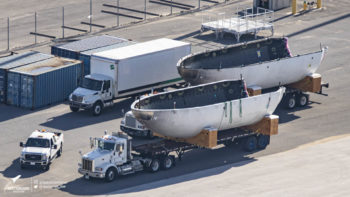

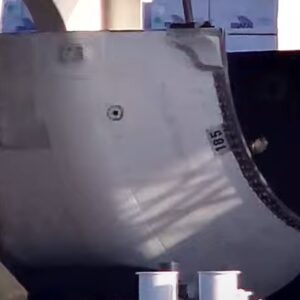
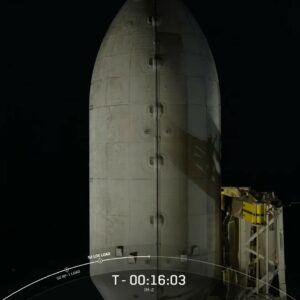


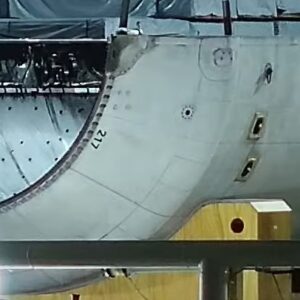
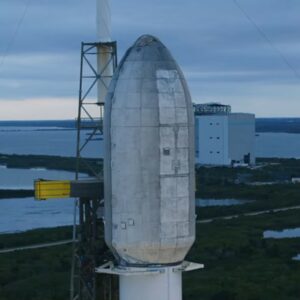

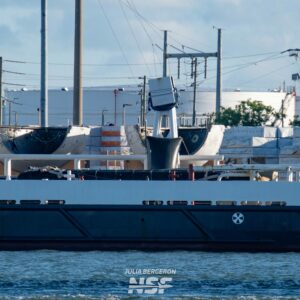

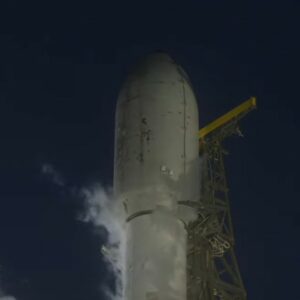


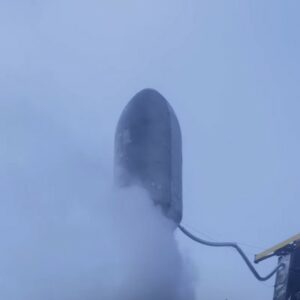

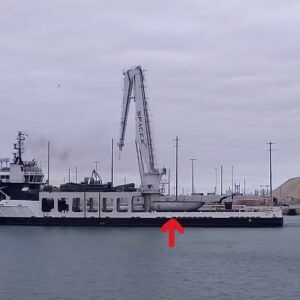


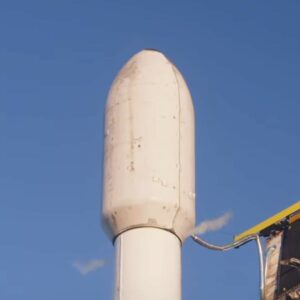

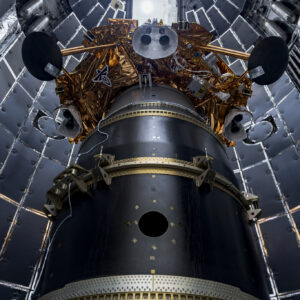



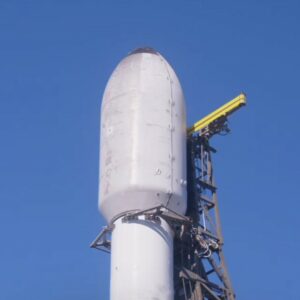
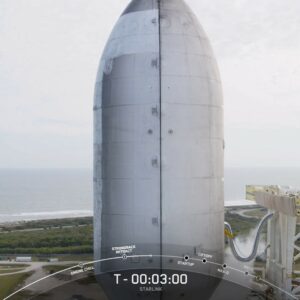
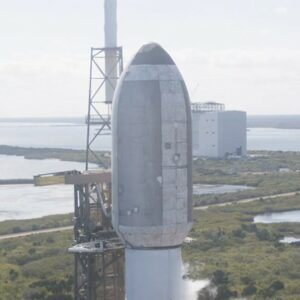


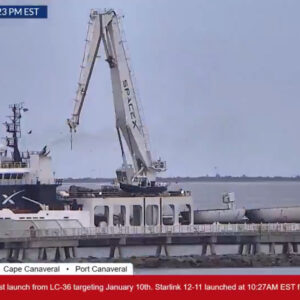

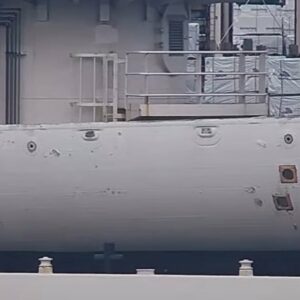
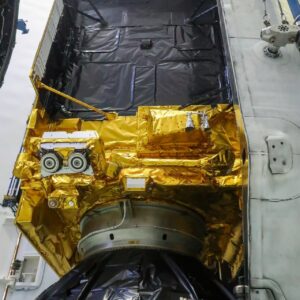
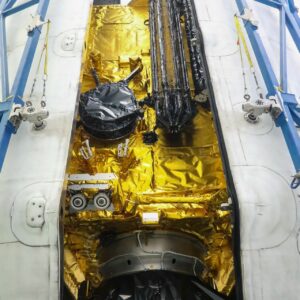
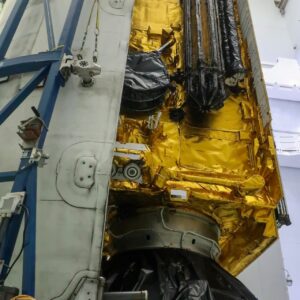






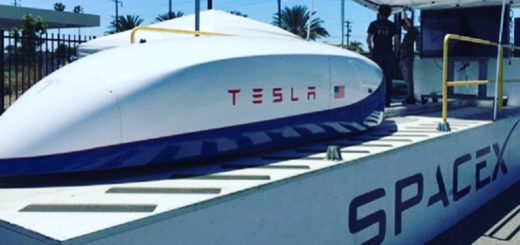

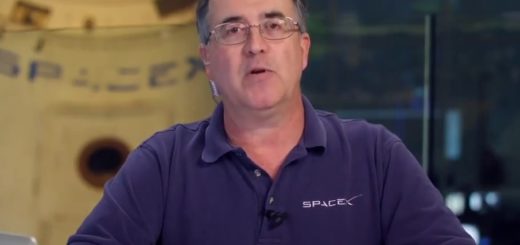


Thanks for the effort. Suggestion for improvement: for the Recovered column, instead of using colored YES, use the following:
NET: recovered by the NET
SEA: planned and recovered from the sea
N->S: Planned by the net, missed and recovered from the sea
Update in timely fashion , Starlink 16 launched yesterday 24 hours later nothing
No point in updating it until I know the result. We still don’t know if they recovered anything during the last mission. I have to wait for photos of Ms. Tree once it returns to port.
In the last two columns, do the left and right of the slash refer to passive/active or viceversa or random? I am tracking individual fairing halves and I use your table to validate my guesses. Thanks for this great resource.
No, it’s random.
I gave up trying to track these things because it’s becoming impossible to do so accurately. SpaceX has been sharing less and less information about fairing reuse and sometimes there are no photos of recovered fairings available, so it becomes too much of a guessing game.